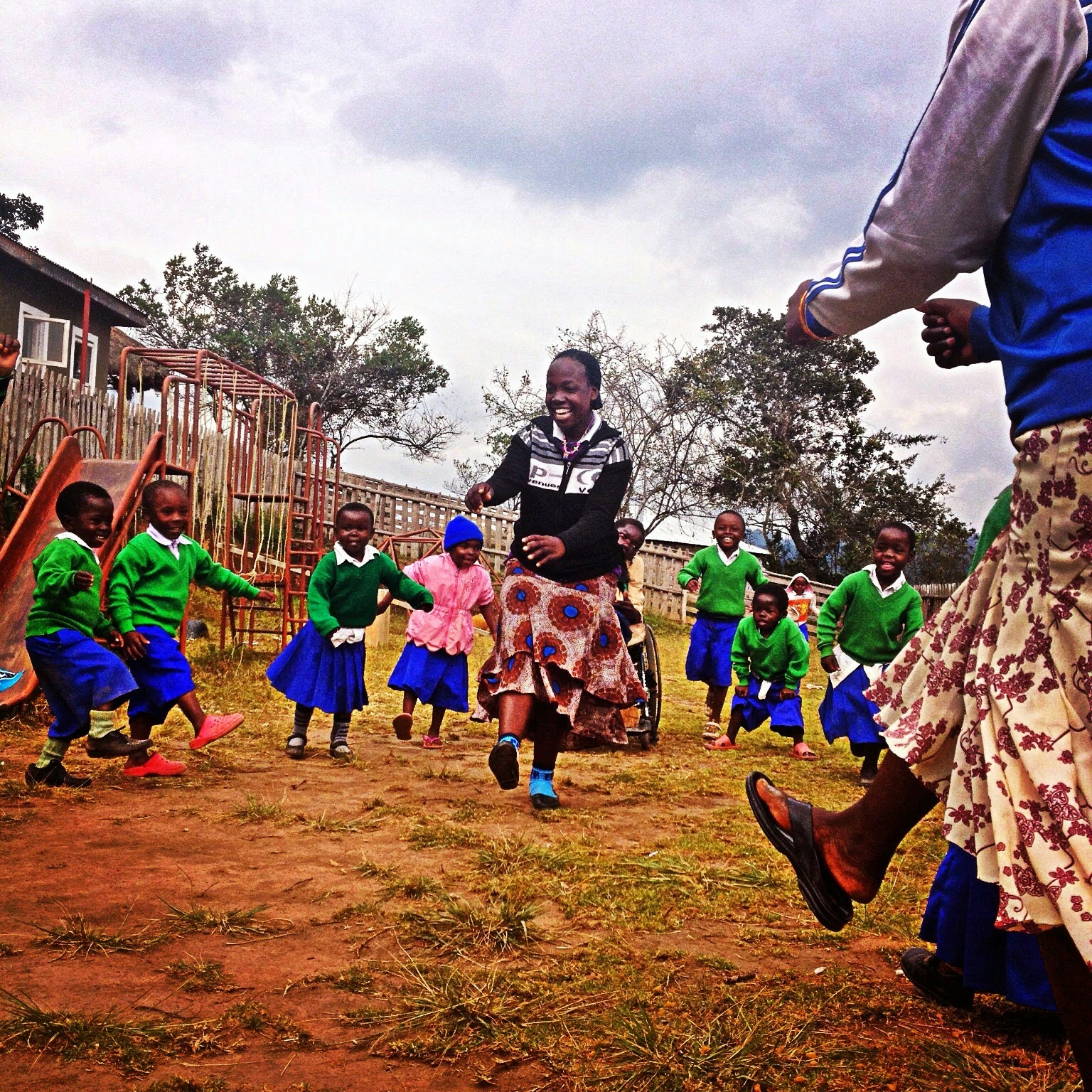 |
| Can we join in too?! Teacher Dorkas is leading a Circle Time song that gets everyone up and moving! |
 |
| Igoda Village student Anita practices her addition! She is top of her class in math and the independent learning style of the classroom allows her to move at her own pace- and she sure flies! |
There are currently two pre-school classes (ages 8 months to 1.5 years and 1.5 years to 3 years) and two Kindergarten classes (ages 3 years to 8 years) on-site. The teaching style is based on the Montessori-philosophy of child-directed learning. This means that the teacher follows the child's interest and pace through the engagement of self-correcting, independent activities. School curriculum uses culturally appropriate, independent activities that are organized into Montessori’s Five Sections of the Classroom: Practical Life, Sensorial, Math, Language, and Culture and Science. Each child is free to move from one activity to another based upon their interests. The teacher’s role is to observe and guide.
Each day is broken up into two periods of independent activity and three short Circle Times. The day begins with a Circle Time where the children and teachers greet each other, talk about the day, and do a fun song or game. The following two Circle Times are also filled with songs, dancing, games, and activities that allow the children to release energy but in a structured way. The children often take turns leading the songs, and it is not uncommon to hear both English and Swahili songs being used. In fact, Circle Time is usually the first place an English word or greeting is introduced, tied to a song or game. It is a goal of the school to integrate English and Swahili completely.
This “new” approach to early childhood education is an important departure from more strict teaching methods commonly seen in over-crowded classrooms. This method has ultimately been more effective in this rural setting for a number of reasons. First, this methodology has been proven effective in high volume classrooms and little resources. This means that in most Kindergarten classrooms in the village, books, furniture, desks, and shelving are all anomalies. About 90% of the on-site classroom activities and materials are hand-crafted by teachers, setting the example that one doesn’t need money to teach. All that is needed is a little ingenuity, resourcefulness, and dedication to the job at hand. Second, the independent activity approach to teaching means that students can work together in small groups that are overseen and guided by the teacher. No longer is one teacher attempting to control and gain the attention of 100 five year olds (a common ratio in village classrooms). Finally, a classic Montessori classroom contains children of a wide age range- as do classrooms in the village. The child-directed philosophy allows each child the freedom to move at their own pace, regardless of the level of their fellow peers. Teachers then have the freedom to provide more advanced students with harder and harder activities to prepare them for Primary School, while younger children can refine their motor skills and practice culturally appropriate skills they can use at home!
The vulnerable youth at the Children's Village thrive under the structure and routine that the classroom provides. They are allowed freedom to explore and engage their interests with tangible, reinforced limits. This, as well as the individualized attention, means that development is monitored more closely than ever and troubled behavior can be addressed quickly. Teachers are able to work closely with guardians to reinforce discipline and send cohesive messages to the children. Also, the teachers are very familiar with the children and the medical problems each child may face so they can give them the best care and report any changes in health status quickly and efficiently. It is the hope of Mufindi Orphans to one day be able to provide on-site schooling for all children who face medical problems that might prevent them from thriving in local schools.















